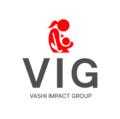VIG Research and Evaluation Mentorship Programme
Creating Female Research Leaders in East Africa
The Vashi Impact Group (VIG) Research and Evaluation Mentorship Programme has been designed to nurture the next generation of female researchers in East Africa by offering comprehensive training and career development opportunities. Recognising the dearth of female leadership in data management and supervision across East African countries, our own research shows the challenge of identifying female researchers from these nations compared to their male counterparts. In response, VIG has launched this initiative to cultivate a cohort of female researchers and evaluators using social equity and decolonisation lens to shift power dynamics. This capacity-building initiative aims to empower female researchers in East Africa with the knowledge and confidence to autonomously oversee both small and large-scale research projects. We provide a blend of theoretical insights and hands-on experience to facilitate the collection of impactful data across various domains. Participants in the programme acquire indispensable skills in quantitative and qualitative research methodologies, data collection methods and tools, data management software, data analysis, interpretation and presentation (tabular and graphical presentation of findings), and reporting skills. The modules will also provide an understanding of important concepts and processes for evaluations, including understanding of logframes (outputs, outcomes and indicators) and theories of change. Furthermore, the programme places significant emphasis on nurturing confidence essential for securing employment. The programmes also cover key components, research ethics, do no harm approaches and safeguarding. Through this holistic approach, VIG is dedicated to nurturing a pool of proficient and dedicated researchers poised to contribute to evidence-based decision-making and policy formulation in East Africa.
VIG extends an invitation to universities and organisations across East Africa to collaborate with us by either incorporating members from their existing teams or actively participating in the implementation of this significant initiative.
For further details, visit: www.vashimpactgroup.com/mentorship-programme
Or
The Vashi Impact Group (VIG) Research and Evaluation Mentorship Programme has been designed to nurture the next generation of female researchers in East Africa by offering comprehensive training and career development opportunities. Recognising the dearth of female leadership in data management and supervision across East African countries, including Uganda, Kenya, Rwanda, South Sudan, Sudan, and Tanzania, our own research shows the challenge of identifying female researchers from these nations compared to their male counterparts. In response, VIG has launched this initiative to cultivate a cohort of female researchers and evaluators using social equity and decolonisation lens to shift power dynamics. This capacity-building initiative aims to empower female researchers in East Africa with the knowledge and confidence to autonomously oversee both small and large-scale research projects. We provide a blend of theoretical insights and hands-on experience to facilitate the collection of impactful data across various domains. Participants in the programme acquire indispensable skills in quantitative and qualitative research methodologies, data collection methods and tools, data management software, data analysis, interpretation and presentation (tabular and graphical presentation of findings), and reporting skills. The modules will also provide an understanding of important concepts and processes for evaluations, including understanding of logframes (outputs, outcomes and indicators) and theories of change. Furthermore, the programme places significant emphasis on nurturing confidence essential for securing employment. The programmes also cover key components, research ethics, do no harm approaches and safeguarding. Through this holistic approach, VIG is dedicated to nurturing a pool of proficient and dedicated researchers poised to contribute to evidence-based decision-making and policy formulation in East Africa.
VIG extends an invitation to universities and organisations across East Africa to collaborate with us by either incorporating members from their existing teams or actively participating in the implementation of this significant initiative.
For further details, visit: www.vashimpactgroup.com/mentorship-programme
Or
Who is the programme for?
The programme targets women aged 18-24 in East Africa who are interested in acquiring research and evaluation skills. Applications from outside the region will only be considered on a case-by-case basis.
What is the selection process?
You must have data collection experience. Priorities will be given to women aged 18-24 years old based in East Africa. Individuals interested in joining this programme outside this region, please drop us an email at VIGMentorshipProgramme@vashimpactgroup.com with a subject line Outside East Africa
How to apply
Prospective candidates must email a two-page CV, one page cover letter, and list two referees. Your cover letter should explain your motivation for applying to the course. We will then select a cohort of 40 female participants. Virtual interviews will be conducted with shortlisted candidates, and references provided in the application forms will be contacted thereafter. Submit your applications at VIGMentorshipProgramme@vashimpactgroup.com with a subject line ‘Application for the Mentorship Programme’
Start Date
August 2024
Programme Duration
The pilot programme will last for one year. Selected candidates will be required to dedicate 2 hours of their time to attend online sessions and 2-4 hours self-paced learning per week.
What will you receive?
You will receive a comprehensive handbook delineating programme expectations, encompassing attendance criteria, assignment due dates, and the anticipated level of engagement in research endeavours.
Moreover, you will benefit from one-on-one mentorship sessions tailored to address any queries or apprehensions you may encounter, and to provide guidance.throughout your research endeavour.
Following the completion of each module, you will be awarded a research certificate to commemorate and applaud your learning achievements.
How will the modules be assessed?
You will be assessed under each module through individual and group tasks, which will include class discussions, group presentations and debates, written pieces (essays, blogs, case studies, social media interaction, quizzes etc). Full details of the assessments will be provided against each module in the VIG’s Female Research Leadership programme handbook.
Who will be the programme lead?
The programme will be overseen by Dr. Ritu Mahendru and VIG’s proficient research team spanning the globe. Our research personnel have graduated from esteemed UK institutions such as LSE, holding Master’s and PhD degrees. They possess first hand expertise in gathering, analysing, and presenting both qualitative and quantitative data. Furthermore, they are well-versed in the current discourse surrounding research and evaluation, as well as proficient in utilising the latest data analysis software.
What will the programme cover?
The programme will include 11 modules in total. Each module will last for a month. Details of each module is given below.

Module 1: Research Methods
This segment of the programme will delve into the fundamental principles of research methodology. Participants will gain insights into the definition of research, distinguishing it from evaluation, and understanding the nuances between qualitative and quantitative methodologies. Through interactive sessions and practical examples, learners will explore various research approaches, methodologies, and their respective applications in diverse contexts. Additionally, the module will provide a brief overview of data collection techniques, data analysis methods, and the integration of qualitative and quantitative research techniques for robust and insightful research outcomes.

Module 2: Mixed Methods Research
This module would explore the integration of qualitative and quantitative research methods, providing participants with a deeper understanding of how to effectively combine different data collection and analysis approaches to address complex research questions. In quantitative research, the module will provide a deeper understanding of the design and implementation of surveys for quantitative data collection. This will include the different sampling designs, simple, stratified and cluster random sampling.
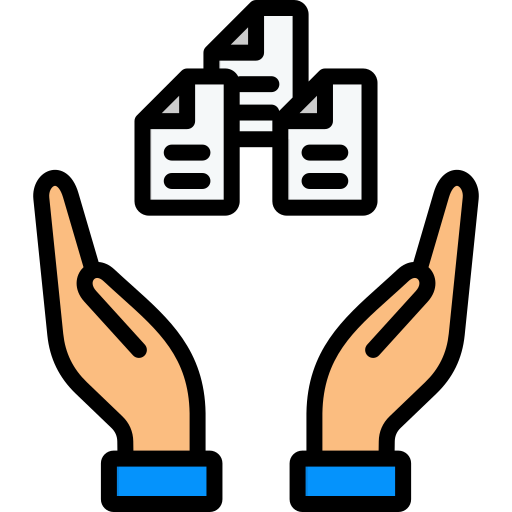
Module 3: Data Collection and Management
In this module, participants will delve into the intricacies of data collection and management processes essential for conducting effective research and evaluation. Topics covered will include various data collection methods such as surveys, interviews, observations, and focus groups, along with practical techniques for ensuring data accuracy, reliability, and validity. Participants will also learn about the importance of ethical considerations in data collection, including informed consent, confidentiality, and privacy protection. Furthermore, the module will address strategies for organising, storing, and managing large datasets efficiently using appropriate data management software and tools (ODK, KoboToolBox, Survey Solutions etc).

Module 4: Research Ethics and Safeguarding
This module will focus on the ethical principles and guidelines that govern research and evaluation activities. Participants will explore ethical considerations related to participant recruitment, informed consent, data confidentiality, and conflict of interest. Special attention will be given to safeguarding vulnerable populations and ensuring the ethical conduct of research in diverse cultural and social contexts. Through case studies and interactive discussions, participants will develop a comprehensive understanding of research ethics and learn how to apply ethical principles to their own research projects.
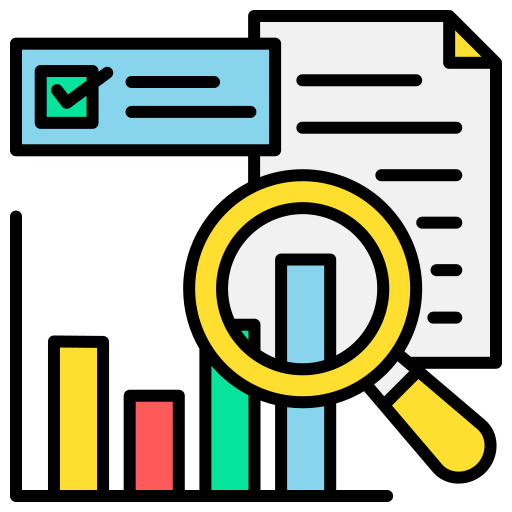
Module 5: Data Analysis
In this module, participants will learn essential data analysis techniques and tools for transforming raw data into meaningful insights. Topics covered will include statistical analysis methods for both quantitative and qualitative data, such as descriptive statistics, inferential statistics, thematic analysis, and content analysis. Participants will gain hands-on experience with data analysis software packages commonly used in research, such as SPSS, NVivo, STATA and R. Through practical exercises and case studies, participants will develop proficiency in data analysis and interpretation, enabling them to draw valid conclusions and implications from their research findings.

Module 6: Advanced Data Analysis Techniques
Building on the foundational data analysis module, this module would delve into more advanced statistical and analytical methods, such as regression analysis, factor analysis, and structural equation modelling. Participants would gain proficiency in using advanced data analysis software to conduct sophisticated analyses and interpret complex data sets.

Module 7 : Writing Research and Evaluation Reports
This module will focus on the essential skills required for effectively communicating research and evaluation findings through written reports. Participants will learn how to structure and format research reports, including the components of an executive summary, introduction, literature review, methodology, results, discussion, and conclusions. Emphasis will be placed on clarity, coherence, and precision in writing, as well as the use of visual aids and graphics to enhance understanding. Participants will also explore strategies for tailoring reports to different audiences and stakeholders, ensuring that research findings are communicated effectively for decision-making and policy development purposes.
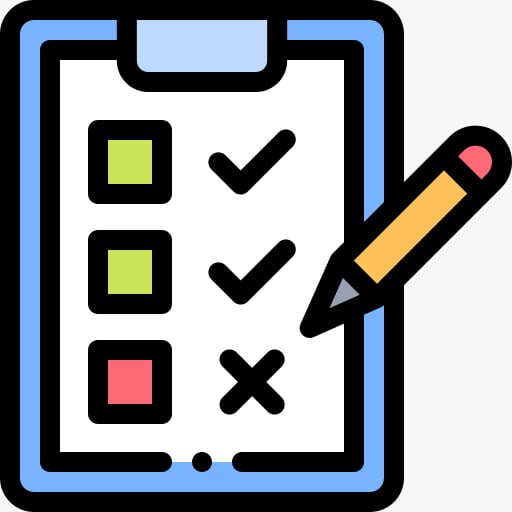
Module 8: Programme Evaluation
Participants would learn about the principles and practices of evaluating programmes and interventions, including logic models, evaluation frameworks, and outcome measurement techniques. This module would cover evaluation design, data collection methods, and reporting for assessing the effectiveness and impact of various initiatives.
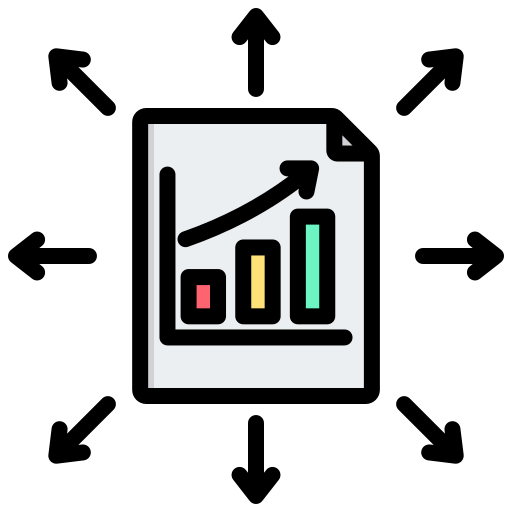
Module 9: Research Dissemination and Knowledge Translation
This module will focus on strategies for disseminating research findings to diverse audiences and translating research into actionable recommendations for policymakers, practitioners, and the public. Participants would learn how to effectively communicate research findings through presentations, publications, and digital media platforms.

Module 10: Research Project Management
This module would explore the integration of qualitative and quantitative research methods, providing participants with a deeper understanding of how to effectively combine different data collection and analysis approaches to address complex research questions. In quantitative research, the module will provide a deeper understanding of the design and implementation of surveys for quantitative data collection. This will include the different sampling designs, simple, stratified and cluster random sampling.

Module 11: Career Development and Job Search Strategies
This module will focus on equipping participants with the essential skills and resources needed to navigate their career paths in the field of research and evaluation. Key topics covered would include:
- Self-assessment and goal setting: Participants will engage in self-reflection exercises to identify their strengths, interests, and career goals within the research and evaluation sector.
- Career exploration: Participants will explore various career paths and job roles within research institutions, non-profit organisations, government agencies, consulting firms, and academic settings.
- Networking and professional branding: Participants will learn effective networking strategies for building professional relationships and expanding their career opportunities within the research and evaluation community. They will also learn how to develop a strong professional brand through online platforms such as LinkedIn and professional associations.
- Job search techniques: Participants will learn practical job search techniques, including how to search for job openings, tailor their resumes and cover letters to specific positions, and prepare for job interviews.
- Professional development opportunities: Participants will explore ongoing professional development opportunities, such as conferences, workshops, certifications, and further education programmes, to enhance their skills and advance their careers in research and evaluation.
- Mentorship and career guidance: Participants will receive guidance and support from experienced mentors within the research and evaluation field, who would provide advice, feedback, and career insights to help mentees achieve their career goals.
By including a module on career development and job search strategies, the research and evaluation programme will provide participants with the technical skills and knowledge needed for research and evaluation work as well as empower them to navigate their career paths and succeed in the job market.
The programme will include 11 modules in total. Each module will last for a month. Details of each module is given below.
Module 1: Research Methods: This segment of the programme will delve into the fundamental principles of research methodology. Participants will gain insights into the definition of research, distinguishing it from evaluation, and understanding the nuances between qualitative and quantitative methodologies. Through interactive sessions and practical examples, learners will explore various research approaches, methodologies, and their respective applications in diverse contexts. Additionally, the module will provide a brief overview of data collection techniques, data analysis methods, and the integration of qualitative and quantitative research techniques for robust and insightful research outcomes.
Module 2: Mixed Methods Research: This module would explore the integration of qualitative and quantitative research methods, providing participants with a deeper understanding of how to effectively combine different data collection and analysis approaches to address complex research questions. In quantitative research, the module will provide a deeper understanding of the design and implementation of surveys for quantitative data collection. This will include the different sampling designs , simple, stratified and cluster random sampling.
Module 3: Data Collection and Management: In this module, participants will delve into the intricacies of data collection and management processes essential for conducting effective research and evaluation. Topics covered will include various data collection methods such as surveys, interviews, observations, and focus groups, along with practical techniques for ensuring data accuracy, reliability, and validity. Participants will also learn about the importance of ethical considerations in data collection, including informed consent, confidentiality, and privacy protection. Furthermore, the module will address strategies for organising, storing, and managing large datasets efficiently using appropriate data management software and tools (ODK, KoboToolBox, Survey Solutions etc).
Module 4: Research Ethics and Safeguarding: This module will focus on the ethical principles and guidelines that govern research and evaluation activities. Participants will explore ethical considerations related to participant recruitment, informed consent, data confidentiality, and conflict of interest. Special attention will be given to safeguarding vulnerable populations and ensuring the ethical conduct of research in diverse cultural and social contexts. Through case studies and interactive discussions, participants will develop a comprehensive understanding of research ethics and learn how to apply ethical principles to their own research projects.
Module 5: Data Analysis: In this module, participants will learn essential data analysis techniques and tools for transforming raw data into meaningful insights. Topics covered will include statistical analysis methods for both quantitative and qualitative data, such as descriptive statistics, inferential statistics, thematic analysis, and content analysis. Participants will gain hands-on experience with data analysis software packages commonly used in research, such as SPSS, NVivo, STATA and R. Through practical exercises and case studies, participants will develop proficiency in data analysis and interpretation, enabling them to draw valid conclusions and implications from their research findings.
Module 6: Advanced Data Analysis Techniques: Building on the foundational data analysis module, this module would delve into more advanced statistical and analytical methods, such as regression analysis, factor analysis, and structural equation modelling. Participants would gain proficiency in using advanced data analysis software to conduct sophisticated analyses and interpret complex data sets.
Module 7: Writing Research and Evaluation Reports: This module will focus on the essential skills required for effectively communicating research and evaluation findings through written reports. Participants will learn how to structure and format research reports, including the components of an executive summary, introduction, literature review, methodology, results, discussion, and conclusions. Emphasis will be placed on clarity, coherence, and precision in writing, as well as the use of visual aids and graphics to enhance understanding. Participants will also explore strategies for tailoring reports to different audiences and stakeholders, ensuring that research findings are communicated effectively for decision-making and policy development purposes.
Module 8: Programme Evaluation: Participants would learn about the principles and practices of evaluating programmes and interventions, including logic models, evaluation frameworks, and outcome measurement techniques. This module would cover evaluation design, data collection methods, and reporting for assessing the effectiveness and impact of various initiatives.
Module 9: Research Dissemination and Knowledge Translation: This module will focus on strategies for disseminating research findings to diverse audiences and translating research into actionable recommendations for policymakers, practitioners, and the public. Participants would learn how to effectively communicate research findings through presentations, publications, and digital media platforms.
Module 10: Research Project Management: This module will cover the principles and practices of project management specific to research and evaluation projects. Topics would include project planning, budgeting, timeline management, team coordination, and risk mitigation strategies. Participants would gain skills in project management software tools and techniques for ensuring the successful implementation of research projects from start to finish.
Module 11: Career Development and Job Search Strategies: This module will focus on equipping participants with the essential skills and resources needed to navigate their career paths in the field of research and evaluation. Key topics covered would include:
- Self-assessment and goal setting: Participants will engage in self-reflection exercises to identify their strengths, interests, and career goals within the research and evaluation sector.
- Career exploration: Participants will explore various career paths and job roles within research institutions, non-profit organisations, government agencies, consulting firms, and academic settings.
- Networking and professional branding: Participants will learn effective networking strategies for building professional relationships and expanding their career opportunities within the research and evaluation community. They will also learn how to develop a strong professional brand through online platforms such as LinkedIn and professional associations.
- Job search techniques: Participants will learn practical job search techniques, including how to search for job openings, tailor their resumes and cover letters to specific positions, and prepare for job interviews.
- Professional development opportunities: Participants will explore ongoing professional development opportunities, such as conferences, workshops, certifications, and further education programmes, to enhance their skills and advance their careers in research and evaluation.
- Mentorship and career guidance: Participants will receive guidance and support from experienced mentors within the research and evaluation field, who would provide advice, feedback, and career insights to help mentees achieve their career goals.
By including a module on career development and job search strategies, the research and evaluation programme will provide participants with the technical skills and knowledge needed for research and evaluation work as well as empower them to navigate their career paths and succeed in the job market.
How much does the programme cost?
The programme doesn’t cost anything to participants. The programme is fully funded by VIG.
How to apply
How Are Mentees Selected?
Mentees are selected through a highly competitive process with a priority given to young people with a passion for developing a career as researchers.
What Does the Program Offer?
Through the program, mentees are not only offered with technical research skills but also other soft skills that are crucial for career success, including work ethics & professionalism, communication & interpersonal skills, presentation skills, time management & priority setting etc. Further, mentees are continuously mentored through actual research activities that they participate in, and their performance closely monitored.
Since the program is designed to support career development in research, mentees are expected to go through three main stages of career development in research as described below:
STAGE I: Research Assistant: This is the lowest program entry level and every mentee that enters the program must be trained and/or evaluated for this level before moving up to a higher level. At this level, mentees are expected to have basic data collection skills (such as collection of both quantitative and qualitative data) and basic data management skills (such as transcription and translation of qualitative data materials and simple data entry).
STAGE II: Junior Research Consultant: This is the second level where mentees are expected to have mastered intermediate research skills such as field supervision, data quality monitoring, coding of qualitative data materials, performing basic analysis of both qualitative and quantitative data and writing of simple activity reports.
STAGE III: . Senior Research Consultant: This is the highest level of the mentorship program where mentees are expected to have gained more advance research skills such as conducting advanced analysis of qualitative and/or quantitative data, crafting of technical reports, developing research proposals and writing of scientific manuscripts.
Internship Program: This component was added to the program in 2023 and is aimed at offering further support to mentees wishing to develop a career as research consultants, including initiating their own research firms. It involves offering mentees hands on experience on how to apply and manage consulting opportunities as well as dealing with clients. To qualify for this final stage, a mentee must have attained the highest level of senior research consultant.
Who Qualifies for the Program?
To qualify for the mentorship program, one must be between the ages of 20 to 35 years and be residing in countries where the program is currently being offered. Currently the program is offered to individuals from the following 5 African countries: 1) Tanzania, 2) Kenya, 3) Uganda, 4) Ethiopia, 5) Rwanda and 6) Nigeria.
Individuals who don’t qualify for the program can benefit by signing up for independent research courses at a highly affordable fee.
What is Expected of Mentees?
Mentees MUST be willing to dedicate at least 2-4 hours a week for attending program sessions and completing assignments. After having mastered various research skills, mentees are also expected to participate in actual research activities under CSK as part of ongoing mentorship.
How Long is the Program?
At an individual level, the program is expected to last for one year, however, mentees may progress at different paces. The maximum duration to reach the level of senior consultant is 2 years after which mentees would ONLY be allowed to serve as external consultants to CSK or as part of trainers under the program. The internship program also runs for one year, during which interns are supposed to commit 100% of their time.
How Much Does the Program Cost?
CREMES Research Mentorship Program is offered free of charge to mentees. The program is funded through funds obtained from research activities supported by CSK. Hence, mentees are expected to support research activities under CSK at a slightly lower cost to contribute for the program running costs.
What Are Some of the Success Stories from the Program To-date?
Since inception of the program, CSK has observed a significant improvement in commitment towards high quality research deliverables among its part-time research assistants/consultants (who are all part of the program), which is CSK’s mission.
✅ Several mentees have been offered full-time positions by various NGOs and the government of Tanzania to serve various research-related roles.
✅ Several mentees have managed to advance their research career by pursuing masters degrees in research-related fields, including public health.
✅ Many mentees are supporting research activities under many other organizations in Tanzania, including other research institutions, universities and NGOs.
CLICK HERE TO SEE SHORTLISTED CANDIDATES FOR 2023 BATCH OF MENTEES!
Applications Are Currently CLOSED
However, Please Follow Our Insta & Linkdin pages to Get Timely
Information About Other Opportunities for Training.
